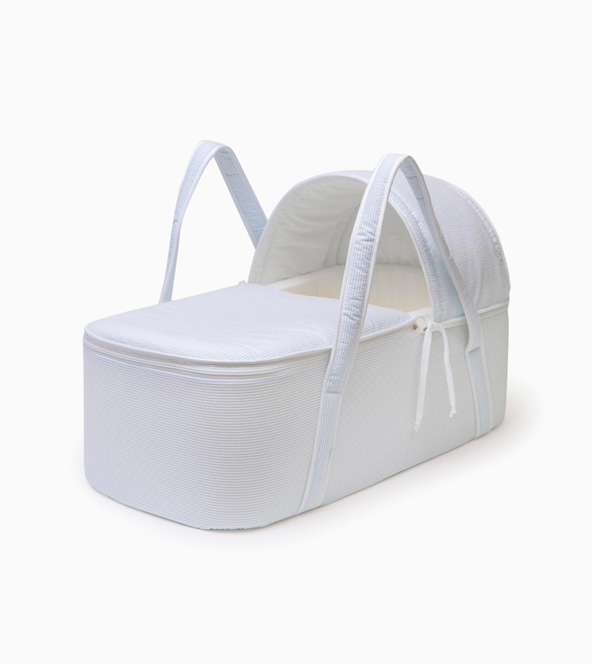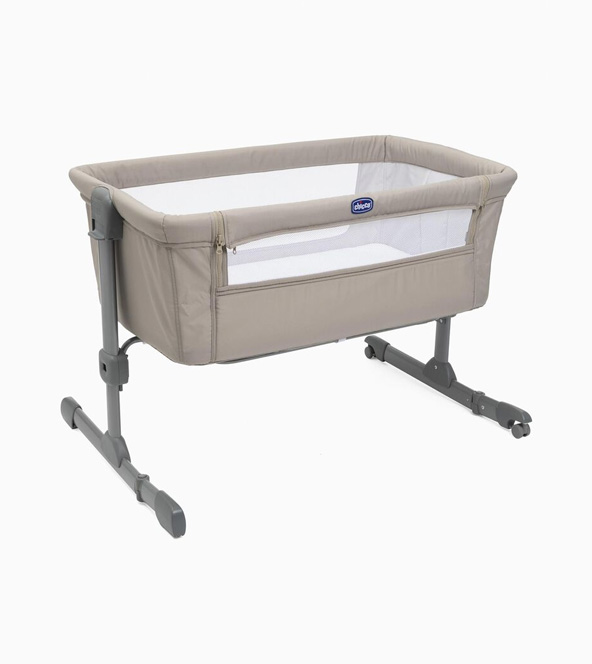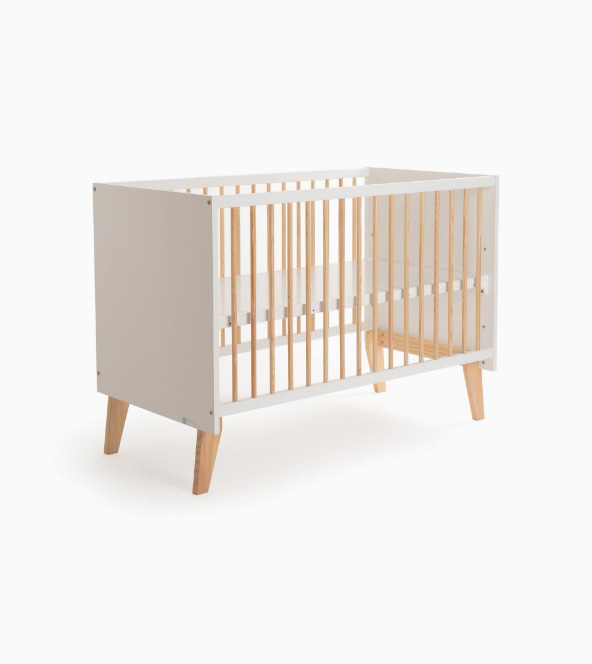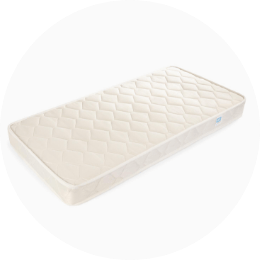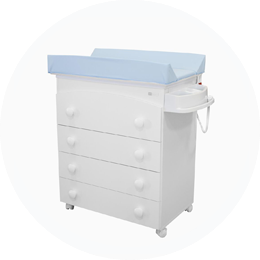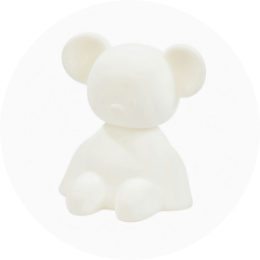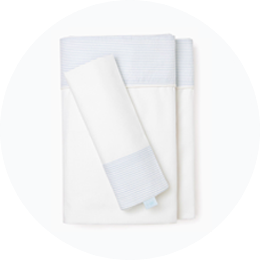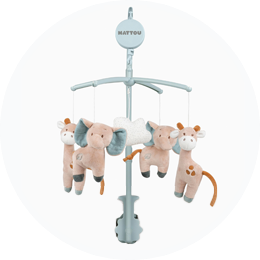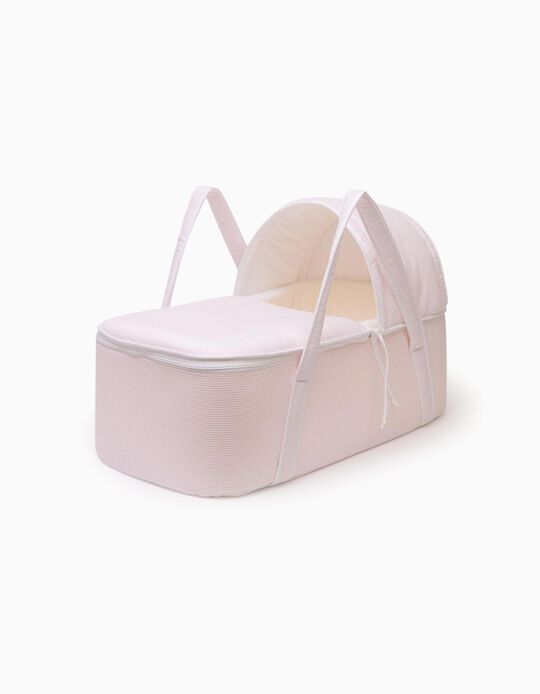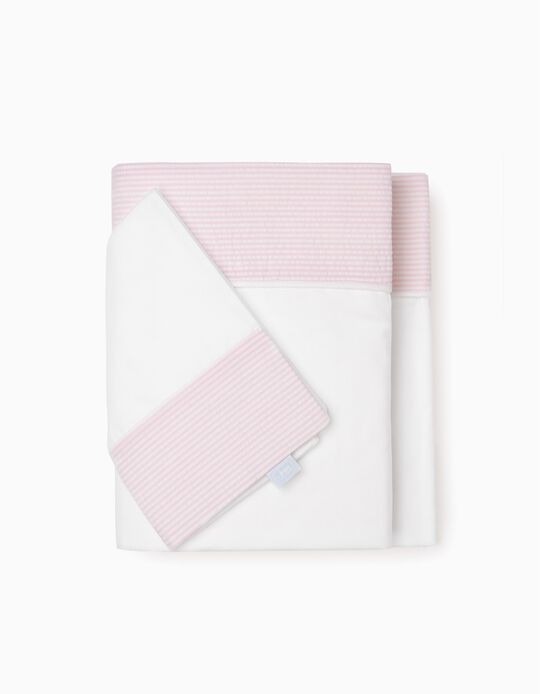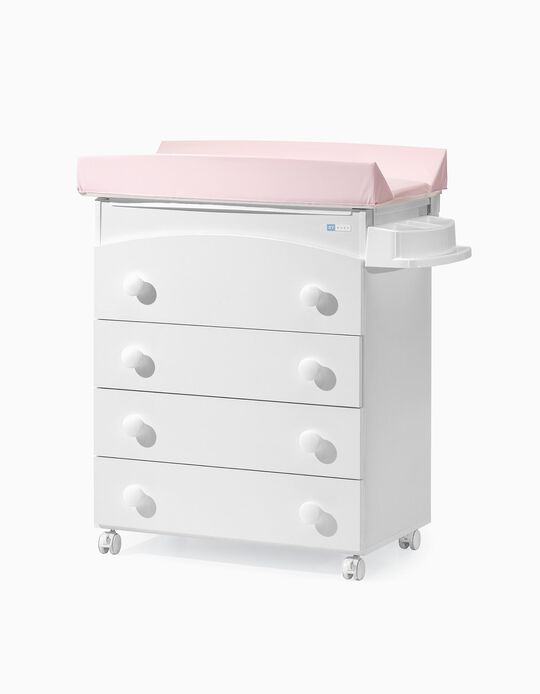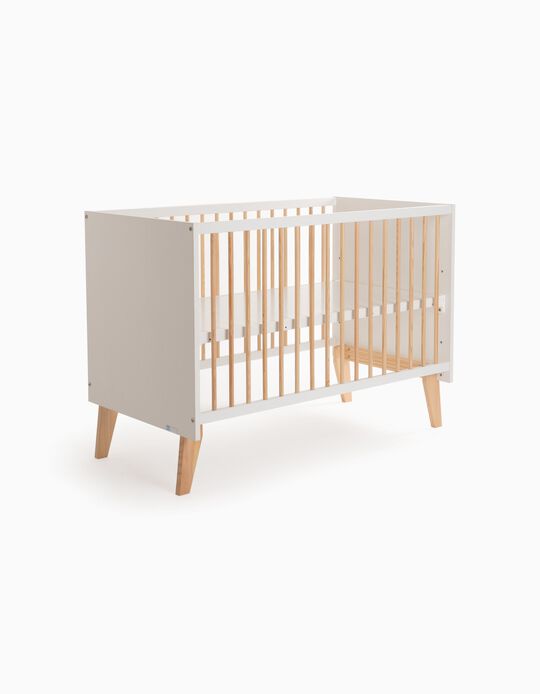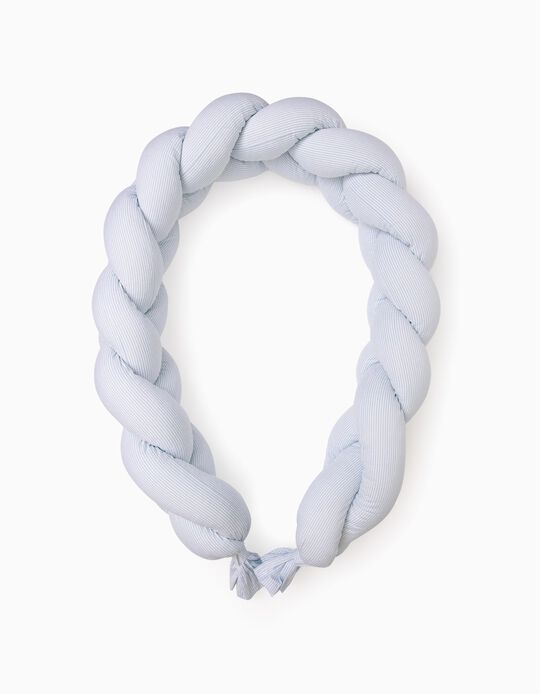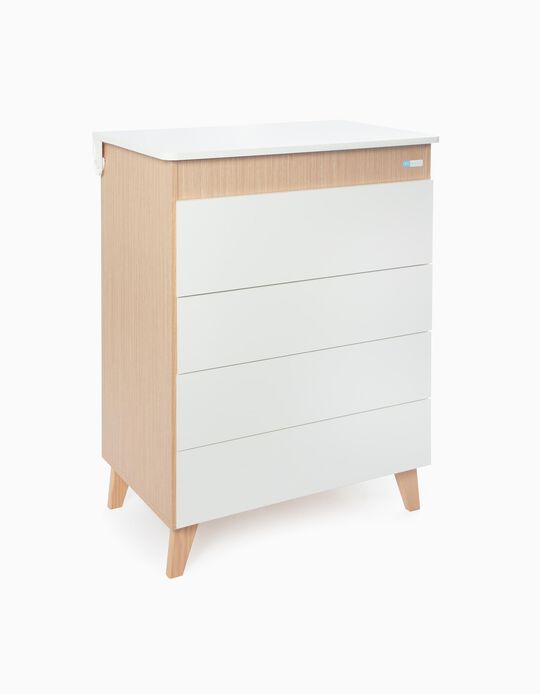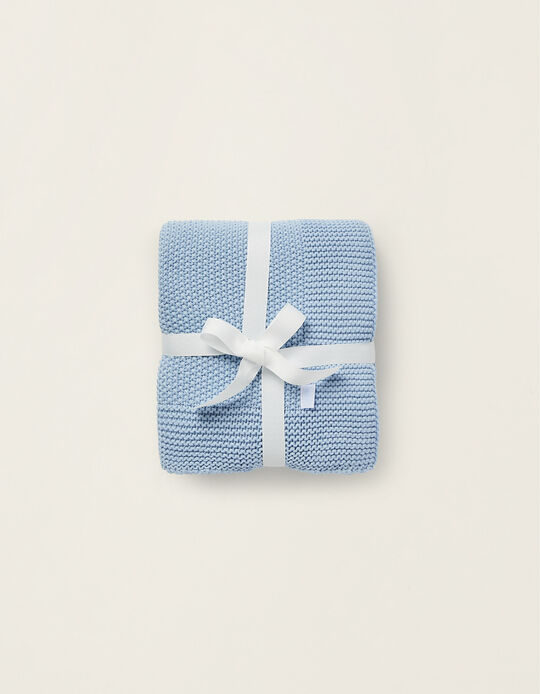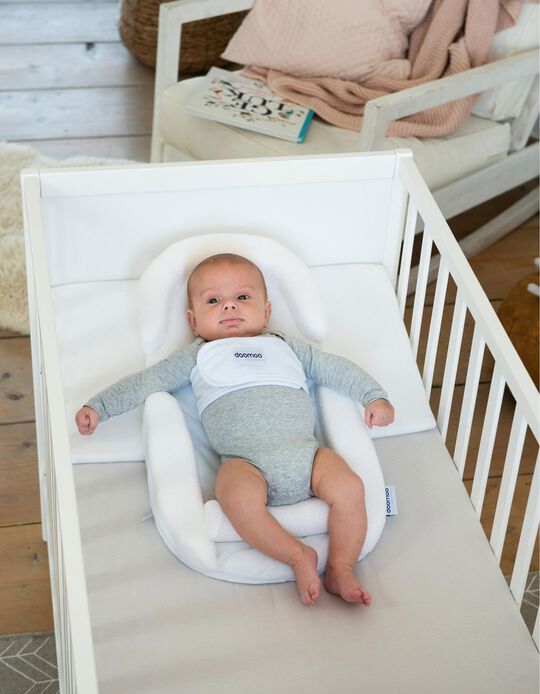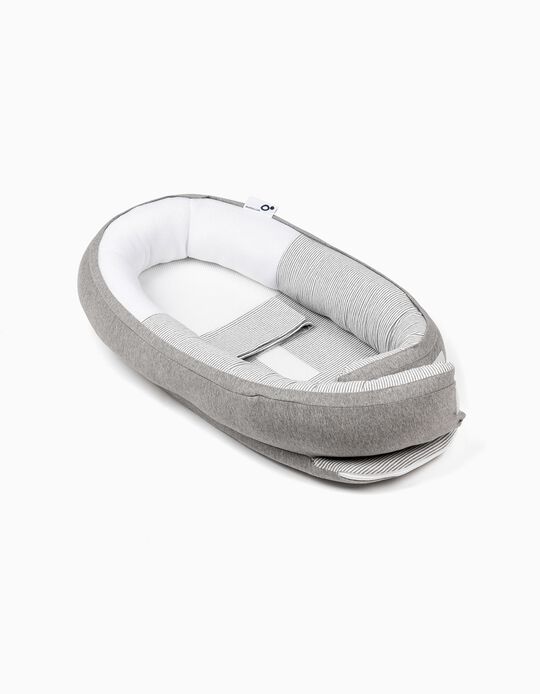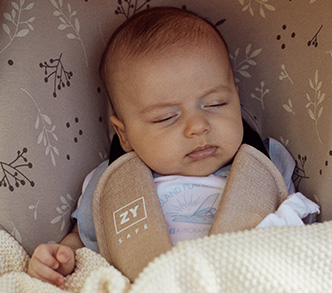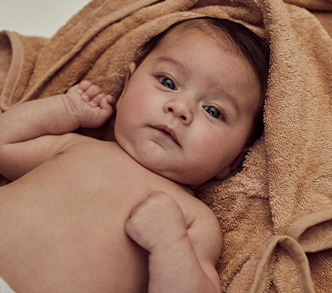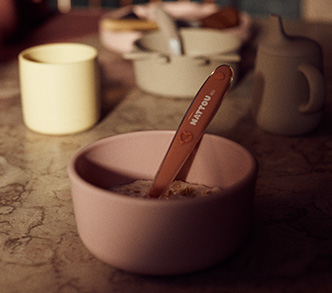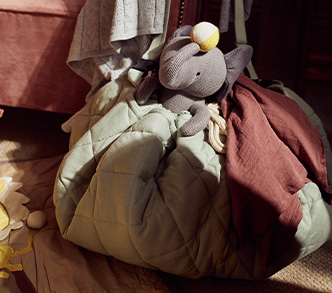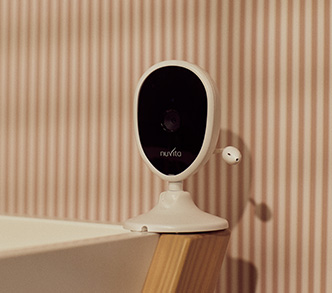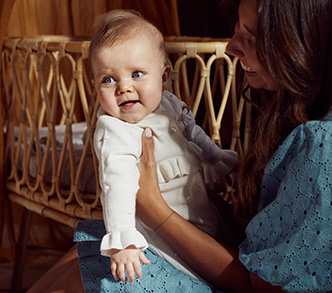Parents generally tend to opt for a carrycot or crib for baby's first months because they're easy to move about from the bedroom to the lounge, for example.
When buying a crib, choose a stable one, ensuring that the gaps are no wider than 6 cm, and meet the European Standard EN 1130. If you choose a swinging crib that is attached to a base or hanging from a structure, check that the attachment system is reliable. With hanging cribs, there is a higher risk of it tumbling over, so make sure that the crib is in the stationary position.
With the co-sleeping cribs, they are placed next to parents' bed and are practical to keep baby close at all times. If you purchase one of these, for safety reasons, ensure that there are no gaps between the crib and the bed. Also make sure that the crib is at the exact same height as the adult bed and correctly attached so that there are no gaps for baby to manoeuvre their head into and so that they can breathe correctly. When nursing, sit up in bed - don't breastfeed lying down as
you may fall asleep and roll onto your baby, risking suffocation.
Should you choose a carrycot, make sure that it meets the EN 1466 European Standard and that you follow all the safety warnings that come with the product. Carrycots are not recommended when children start to sit up unaided, start to crawl, or when they weigh over 9 kg.
Once your baby starts to sit up unaided or starts to crawl, it is time to move them from the crib to the cot, where they can sleep in until they're 18, 24 (or more) months old.
Cots on the market must comply with the EN 716 European Standard. The rails (with vertical bars at all times) should measure 60 cm from the platform on which the mattress rests to the top, and the bars must be no more than 6 cm apart (including gaps in the cot) to avoid falls and trapping baby.
Some cots come with a system to regulate the height of the platform that holds the mattress. If this is the case, check that it is stable and lower it accordingly as your baby grows to avoid falls when they start to sit or stand up unaided. When the child is 90 cm tall, or slightly taller, and the rail is chest-height, lower it or remove it and teach them to crawl out of the bed on their belly. This is when you should consider getting a low bed. If necessary, attach a bed guard
following the safety recommendations in the instructions leaflet.
Foldable travel cots are not recommended for everyday use as they are not as resistant and are likely less comfortable for long-term use. Cots should be at least 60 cm deep for +6 months old babies. Before settling your child down in the cot, make sure that has been opened correctly and that the locking system is in place.
If you choose to buy a second-hand cot or borrow one, keep in mind that it may not comply with the certification Standard in force. Check that it is stable, that there are no broken or missing parts, and that the design and size of the openings are as mentioned above. If the cot needs painting, make sure you use non-toxic paint, namely lead free.

